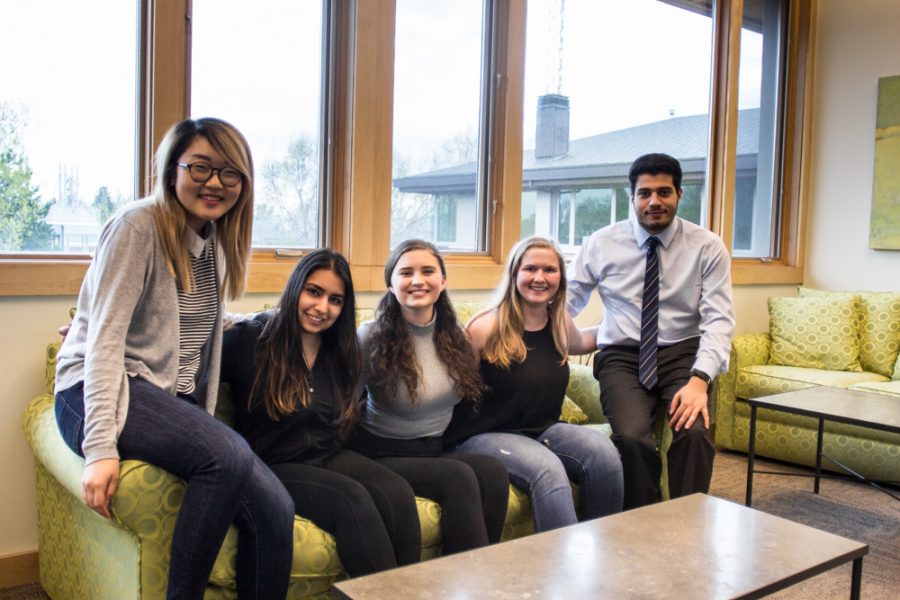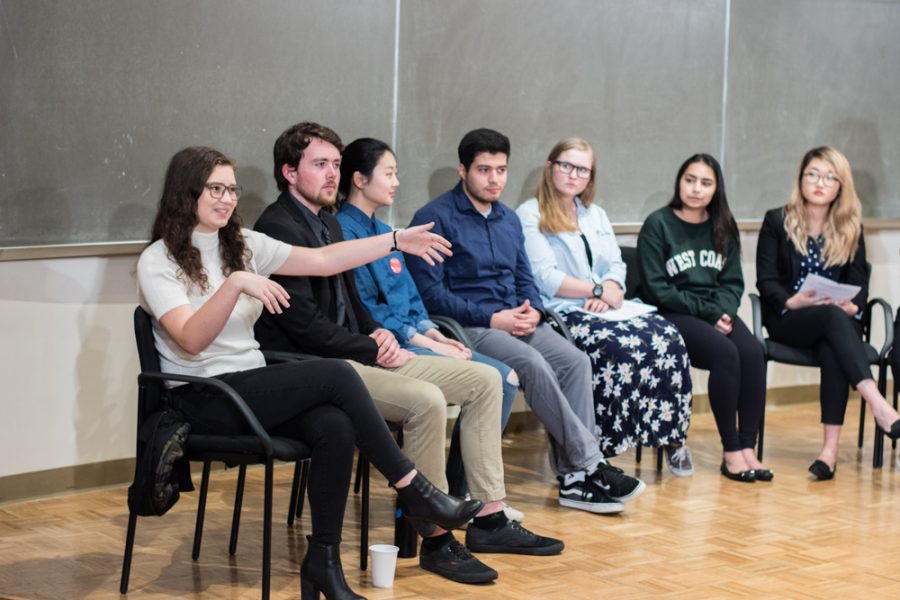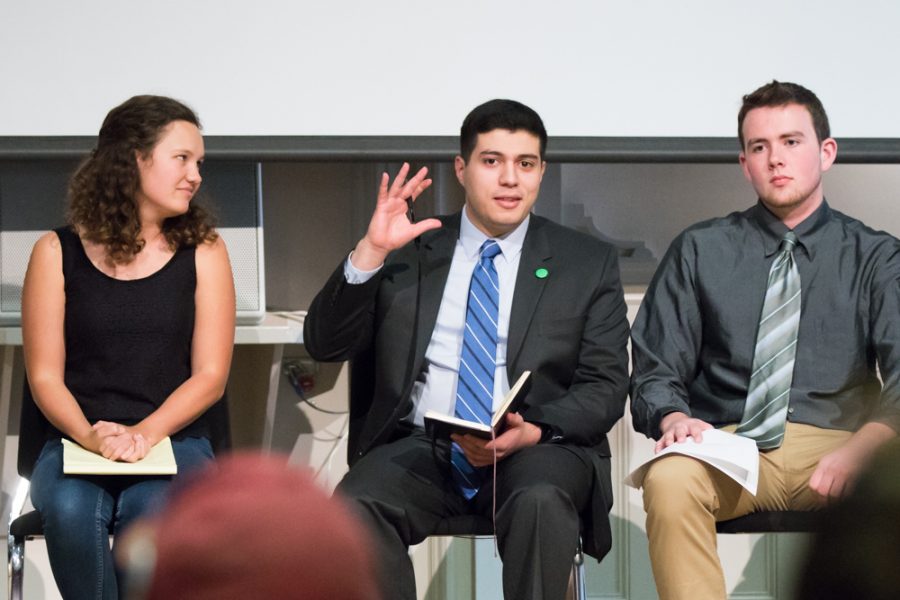A series of revisions to ASWC’s bylaws may change the way ASWC distributes funding to student organizations and initiatives. Four of the revisions would moderate the use of the Travel and Student Development fund, while the fifth would institute a more rigorous review process for all media organizations on campus.
“The impetus for this is that this semester we’ve spent almost all of the money in the Travel and Student Development fund. We’re not even halfway through the semester and this money’s supposed to last all year,” said senior senator Adam Michel, one of the co-authors of the proposed revisions.
Michel and fellow senior senator Zach Duffy proposed several changes to the bylaws governing ASWC’s finance committee. One revision would require that the committee review all applications for funding side by side each semester, instead of approving or denying requests on a rolling basis.
“Right now there’s this idea of first-come first-serve. If I have a trip that’s going in September, I probably have a very good chance of getting funding, whereas the people who might want to take a trip at the beginning of May probably have very little chance of getting funded,” said Duffy.
One of the more controversial revisions would require all campus media organizations to be re-approved by the ASWC Senate every four years. The revised bylaw would also give new media organizations provisional status for their first three years of existence, during which they would need to be re-approved each year.
“I think it’s incredibly problematic. I in no way endorse this bylaw,” said ASWC president Matt Dittrich. “I’ve always been of the opinion that, dollar for dollar, [media organizations are] one of the best student investments we have. There’s no other investment that touches people’s lives so regularly and meaningfully as our media organizations.”
The editors of media organizations affected by the bylaw have also expressed their concern.
“While I’m very confident that we would meet any standards that ASWC would impose upon us, I’m worried about the implication that media organizations have to continue to work extra hard to fulfill some abstract criteria that ASWC is putting out there. I understand the need to be a little bit more fiscally conservative considering the place ASWC’s in financially, but I don’t think the way to do that is attacking the existence of media organizations,” said junior Ben Lerchin, editor of Whitman’s official yearbook Waiilatpu.
Other media organization heads were reluctant to fully endorse the proposal in its current state. Senior Evelina Miropolsky, co-editor of Whitman’s yearly literary publication blue moon, expressed concern with the logistics of a four-year review process.
“The heads [of media organizations] change every year, so that makes it difficult because you might be elected editor-in-chief and be made to deal with all the issues that were left behind for you. It seems a little odd that you could be possibly penalized for something that had been left for you when you took over,” said Miropolsky.
ASWC Nominations Chair Ruby Glaser noted that the bylaw, once edited with the input of media organizations in mind, could end up positively affecting the relationship between ASWC and campus media.
“I think the overall goal of [the bylaw] is not bad. I think having the senators more informed is an excellent thing, but I’m not sure how it’s written gets that motivation across,” she said.
The revisions must pass through the Student Affairs Committee before they are presented to the Senate. Despite the controversy the initial draft may have provoked, both senators were firm in their belief in the necessity of the changes.
“There’s going to be a significantly different way that ASWC funds organizations at the end of the year. I’m confident of that,” said Duffy.








